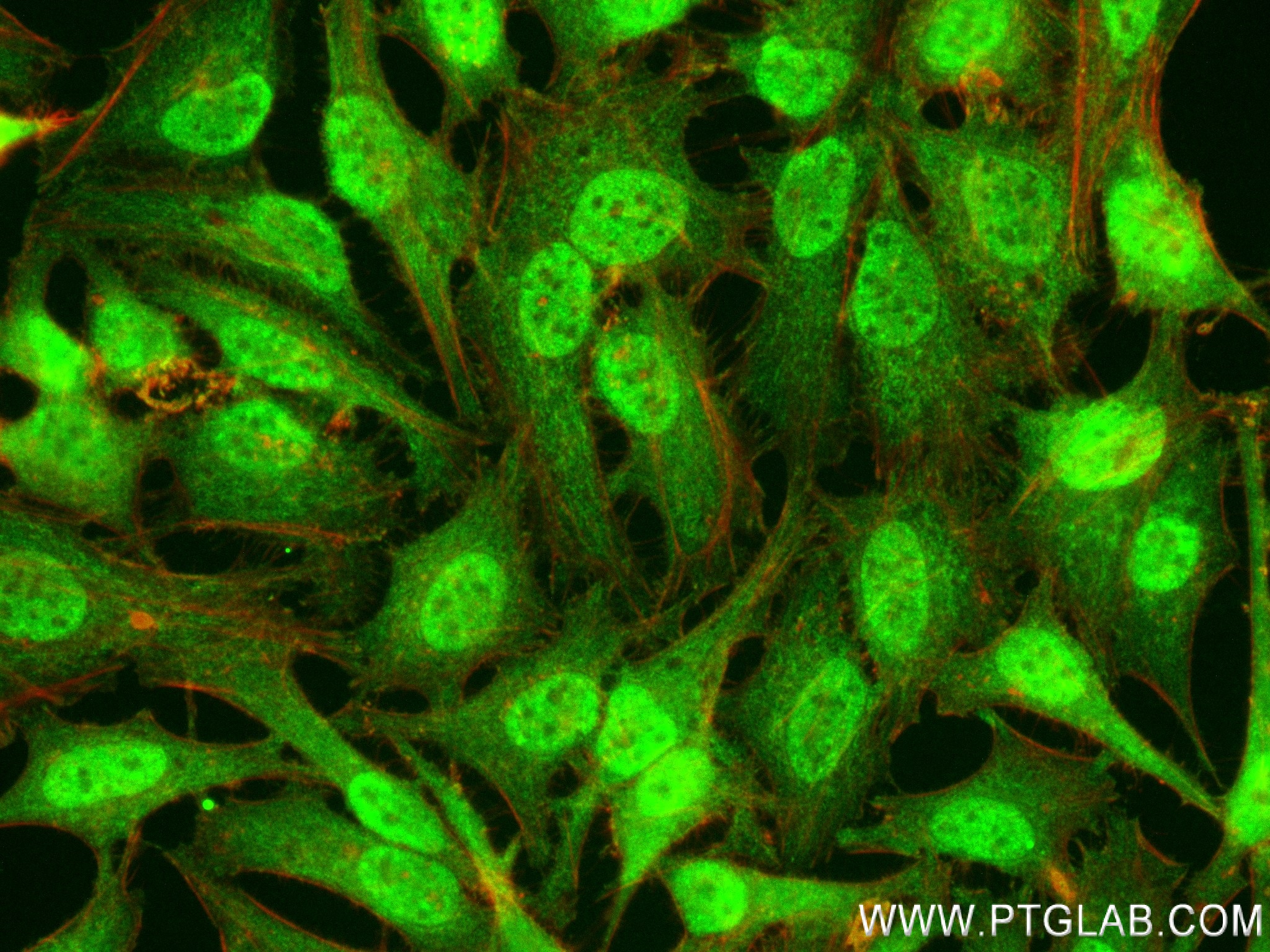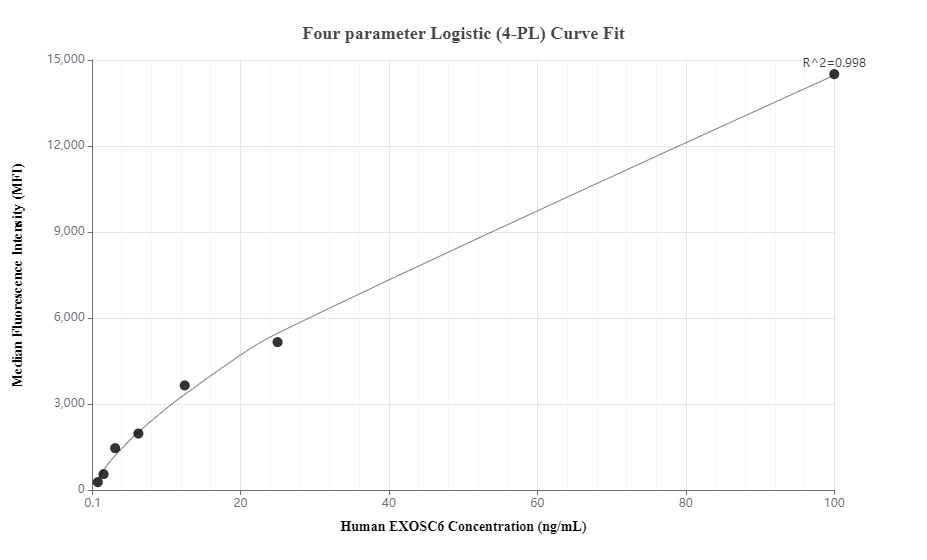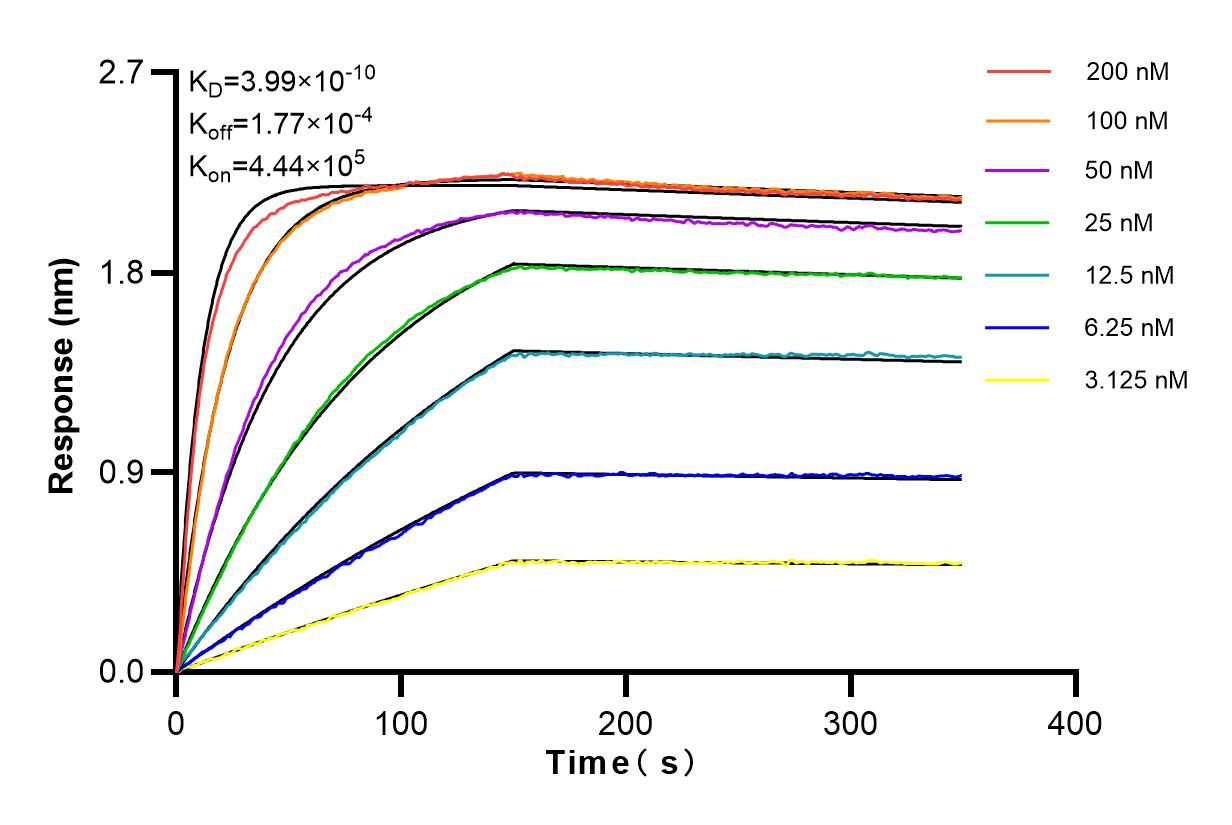验证数据展示
产品信息
84346-2-PBS targets EXOSC6 as part of a matched antibody pair:
MP01222-1: 84346-2-PBS capture and 84346-1-PBS detection (validated in Cytometric bead array)
Unconjugated rabbit recombinant monoclonal antibody in PBS only (BSA and azide free) storage buffer at a concentration of 1 mg/mL, ready for conjugation. Created using Proteintech’s proprietary in-house recombinant technology. Recombinant production enables unrivalled batch-to-batch consistency, easy scale-up, and future security of supply.
This conjugation ready format makes antibodies ideal for use in many applications including: ELISAs, multiplex assays requiring matched pairs, mass cytometry, and multiplex imaging applications.Antibody use should be optimized by the end user for each application and assay.
| 经测试应用 | IF/ICC, Cytometric bead array, Indirect ELISA Application Description |
| 经测试反应性 | human |
| 免疫原 |
CatNo: Ag33513 Product name: Recombinant human EXOSC6 protein Source: e coli.-derived, PGEX-4T Tag: GST Domain: 1-272 aa of NM_058219 Sequence: MPGDHRRIRGPEESQPPQLYAADEEEAPGTRDPTRLRPVYARAGLLSQAKGSAYLEAGGTKVLCAVSGPRQAEGGERGGGPAGAGGEAPAALRGRLLCDFRRAPFAGRRRRAPPGGCEERELALALQEALEPAVRLGRYPRAQLEVSALLLEDGGSALAAALTAAALALADAGVEMYDLVVGCGLSLAPGPAPTWLLDPTRLEEERAAAGLTVALMPVLNQVAGLLGSGEGGLTESWAEAVRLGLEGCQRLYPVLQQSLVRAARRRGAAAQP 种属同源性预测 |
| 宿主/亚型 | Rabbit / IgG |
| 抗体类别 | Recombinant |
| 产品类型 | Antibody |
| 全称 | exosome component 6 |
| 别名 | MTR3, hMtr3p, hMtr3, exosome component 6, EAP4 |
| 计算分子量 | 28kd |
| 观测分子量 | 28-32 kDa |
| GenBank蛋白编号 | NM_058219 |
| 基因名称 | EXOSC6 |
| Gene ID (NCBI) | 118460 |
| 偶联类型 | Unconjugated |
| 形式 | Liquid |
| 纯化方式 | Protein A purification |
| UNIPROT ID | Q5RKV6 |
| 储存缓冲液 | PBS only, pH 7.3. |
| 储存条件 | Store at -80°C. The product is shipped with ice packs. Upon receipt, store it immediately at -80°C |
背景介绍
EXOSC6 (exosome component 6), also known as p11 or MTR3. The calculated molecular weight of EXOSC6 is 28 kDa. And it has low tissue specificity. The gene product constitutes one of the subunits of the multisubunit particle called exosome, which mediates mRNA degradation. It is also a component of the RNA exosome complex (PMID: 29906447). The composition of human exosome is similar to its yeast counterpart. EXOSC6 is homologous to the yeast Mtr3 protein. Its exact function is not known, however, it has been shown using a cell-free RNA decay system that the exosome is required for rapid degradation of unstable mRNAs containing AU-rich elements (AREs), but not for poly(A) shortening. The exosome does not recognize ARE-containing mRNAs on its own, but requires ARE-binding proteins that could interact with the exosome and recruit it to unstable mRNAs, thereby promoting their rapid degradation.




